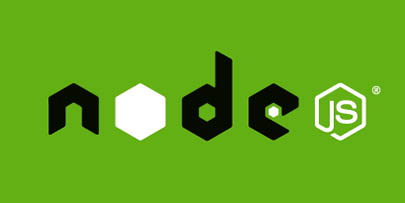
In this tutorial, we will show you how to install Node.js on Ubuntu 20.04 LTS server. For those of you who didn’t know, Node.js is a cross-platform JavaScript runtime environment built on Chrome’s JavaScript, designed to execute JavaScript code on the server-side. It is generally used to build back-end applications, but it is also popular as a full-stack and front-end solution. npm is the default package manager for Node.js and the world’s largest software registry.
This article assumes you have at least basic knowledge of Linux, know how to use the shell, and most importantly, you host your site on your own VPS. The installation is quite simple and assumes you are running in the root account, if not you may need to add ‘sudo‘ to the commands to get root privileges. I will show you the step-by-step installation of Node.js on a Ubuntu 20.04 (Focal Fossa) server.
Prerequisites
- A server running one of the following operating systems: Ubuntu 20.04, 18.04, and any other Debian-based distribution like Linux Mint or elementary OS.
- It’s recommended that you use a fresh OS install to prevent any potential issues.
- A
non-root sudo useror access to theroot user. We recommend acting as anon-root sudo user, however, as you can harm your system if you’re not careful when acting as the root.
Install Node.js on Ubuntu 20.04 LTS Focal Fossa
Step 1. First, make sure that all your system packages are up-to-date by running the following apt commands in the terminal.
sudo apt update sudo apt upgrade sudo apt install curl wget gnupg2
Step 2. Installing Node.js on Ubuntu 20.04.
- Install Node.js and npm from Node Source
You simply need to add the PPA for the version you want to install:
curl -sL https://deb.nodesource.com/setup_14.x | sudo -E bash -
To install, run the commands below:
sudo apt install nodejs
Once done, verify the installation by running:
node --version npm --version
- Install Node.js and npm via Snap
Another way to install Node.js is via Snap package management:
sudo apt install snapd sudo snap install node --channel=14/stable --classic
- Install Node.js and npm using NVM
NVM (Node Version Manager) is a bash script that allows you to manage multiple Node.js versions on a per-user basis.
So, first, we’ll want to update our local repository index and then install libssl-dev and build-essential. That can be done by running the below commands in a terminal or shell:
apt-get update apt-get install build-essential libssl-dev
Once those are installed you need to download the setup script for NVM. Typically you can grab this from their Github page. Though at the time of this writing the newest version is in the command below:
curl -o- https://raw.githubusercontent.com/nvm-sh/nvm/v0.35.3/install.sh | bash
Verify that the script is indeed the one you want and then run:
bash install.sh
To begin the installation of NVM. Once it finishes you will need to reload your profile to have your changes take effect without logging back into your server again. Run the command:
source ~/.profile
Now as we have nvm installed, we can install isolated Node.js versions. To find out the versions of Node.js that are available for installation, we need to type:
[root@idroot.us ~]# nvm ls-remote
. . .
v12.13.0 (LTS: Erbium)
v12.13.1 (LTS: Erbium)
v12.14.0 (LTS: Erbium)
v12.14.1 (LTS: Erbium)
v12.15.0 (LTS: Erbium)
v12.16.0 (LTS: Erbium)
v12.16.1 (LTS: Erbium)
v12.16.2 (LTS: Erbium)
v12.16.3 (Latest LTS: Erbium)
Congratulations! You have successfully installed Node.js. Thanks for using this tutorial for installing Node.js on Ubuntu 20.04 LTS (Focal Fossa) system. For additional help or useful information, we recommend you check the official Node.js website.